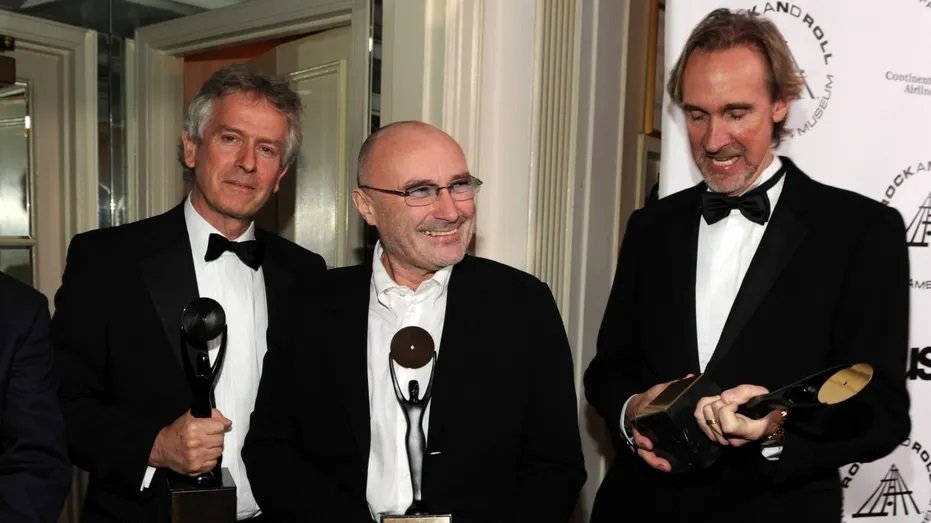Take a look at Phil Collins now. The English rocker and his Genesis bandmates have agreed to sell a bundle of their music rights to Concord Music Group Inc., according to the company.
The megadeal — valued at over $300 million, according to people familiar with the transaction — includes the publishing copyrights and a mix of recorded music income streams and masters of Mr. Collins, Mike Rutherford and Tony Banks’ individual careers and work as the progressive rock group Genesis.
For Concord Music, one of the largest independent music labels, the transaction signals its return to the market as a buyer after a period where it explored a possible sale of itself.
The deal puts Mr. Collins, 71 years old, among other musical greats from Bob Dylan to Bruce Springsteen who in recent years have cashed in on their life’s work for multimillion-dollar sums.
Mr. Dylan’s songwriting catalog fetched nearly $400 million and Mr. Springsteen’s recorded music and songwriting went for over $500 million, according to people familiar with those deals.
Born in West London, Mr. Collins joined Genesis in 1970 as the band’s drummer, later taking on lead vocals after Peter Gabriel’s departure. (Mr. Gabriel’s music interests aren’t included in the deal.)
Mr. Collins penned some of the band’s biggest hits including Invisible Touch, That’s All and I Can’t Dance. His solo career has proven bigger, beginning with the debut solo single In the Air Tonight in 1981 and continuing with hits including Against All Odds (Take a Look at Me Now), One More Night and Another Day in Paradise.
He has won eight Grammy Awards and an Oscar for best original song You’ll Be in My Heart from the Disney 1999 animated hit film Tarzan.
While Mr. Collins set off on his solo career, bassist and guitarist Mr. Rutherford formed Mike + the Mechanics, whose self-titled first album produced two hit singles in Silent Running (On Dangerous Ground) and All I Need Is a Miracle.
In all, Genesis released 15 studio albums. Mr. Collins released eight as a solo artist and Mr. Banks had six. Mr. Rutherford released two solo albums and nine as part of Mike + the Mechanics.
Concord Music has been administering the publishing of Mr. Collins and Genesis since it bought Imagem Music Group in 2017, and conversations with management about a possible transaction were born out of that relationship, said Concord president Bob Valentine.
Mr. Valentine said Concord will work to introduce the catalog of ’80s pop hits to younger generations.
“In the world we live in today with Facebook, Instagram, TikTok, all these things that drive consumption of older music, there are definitely ways for us as a record company to bring some of this music back to life,” he said.
The Nashville, Tennessee-based independent music company operates several labels, publishes music and has a large theatricals division.
It owns the catalogs of Rodgers & Hammerstein and Kidz Bop and represents top songwriters and recording artists including Mark Ronson, Daft Punk, St. Vincent and Nine Inch Nails.
About two years ago, Concord’s longtime majority owner, Michigan Retirement Systems, a pension fund that has invested more than $1 billion into the company, began getting takeover offers as the market for music copyrights heated up, Mr. Valentine said.
He said the company didn’t find the offers to be high enough and decided not to sell, instead focusing efforts on transactions like the one with Mr. Collins and his bandmates.
In mid-September, it bought L.A. Reid and Charles Goldstuck’s pop and hip-hop label HitCo Entertainment, home to Jennifer Lopez and Outkast’s Big Boi.
The market for music rights exploded during the pandemic, as investors sought catalogs’ steady, predictable yield and rising income from music-streaming services such as Spotify and Apple Music.
KKR & Co. Inc., Blackstone Inc., BlackRock Inc., Apollo Global Management Inc., Providence Equity Partners and Eldridge Industries LLC have helped finance deals or started funds to acquire music rights.
Some investors are beginning to take a more cautious approach — and hesitate at sky-high valuations — with the rising cost of capital and broader economic uncertainty.
While music executives say that many of the highest-profile blockbuster catalog deals have already happened, the billions of dollars committed to such funds are helping spawn deals for artists in genres from rock to Latin and country.




